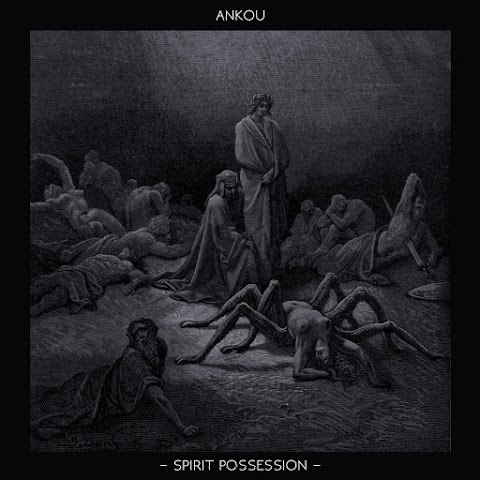World War I

What Caused the First World War?
The causes of World War I
World War I began in the Balkans in late July 1914 and ended in November 1918, leaving 17 million dead and 20 million wounded.

Scholars looking at the long-term seek to explain why two rival sets of powers – Germany and Austria-Hungary on the one hand, and Russia, France, and Great Britain on the other – had come into conflict by 1914.

They look at such factors as political, territorial and economic conflicts, militarism, a complex web of alliances and alignments, imperialism, the growth of nationalism, and the power vacuum created by the decline of the Ottoman Empire.

Other important long-term or structural factors that are often studied include unresolved territorial disputes, the perceived breakdown of the balance of power in Europe, convoluted and fragmented governance, the arms races of the previous decades, and military planning.

Scholars doing short-term analysis focused on the summer of 1914 ask if the conflict could have been stopped, or whether it was out of control.
The immediate causes lay in decisions made by statesmen and generals during the July Crisis of 1914.
This crisis was triggered by the assassination of Archduke Franz Ferdinand of Austria by a Bosnian Serb who had been supported by a nationalist organization in Serbia.[4]The crisis escalated as the conflict between Austria-Hungary and Serbia came to involve Russia, Germany, France, and ultimately Belgium and Great Britain.

Other factors that came into play during the diplomatic crisis that preceded the war included misperceptions of intent (e.g., the German belief that Britain would remain neutral), fatalism that war was inevitable, and the speed of the crisis, which was exacerbated by delays and misunderstandings in diplomatic communications.
The crisis followed a series of diplomatic clashes among the Great Powers (Italy, France, Germany, Britain, Austria-Hungary and Russia) over European and colonial issues in the decades before 1914 that had left tensions high. In turn, these public clashes can be traced to changes in the balance of power in Europe since 1867.
What Caused the First World War?
Consensus on the origins of the war remains elusive since historians disagreed on key factors, and place differing emphasis on a variety of factors.
This is compounded by changing historical records. The deepest distinction among historians is between those who focus on the actions of Germany and Austria-Hungary as key and those who focus on a wider group of actors.
Unquestionably, it is probable that the European Union has decided to proceed to a European war, but it is likely powers, namely Russia, France, Serbia and Great Britain, played a more important role in the traditionally suggested.
Polarization of Europe, 1887-1914

These two sets became, by August 1914, Germany and Austria-Hungary on one side and Russia, France, Serbia and Great Britain on the other.
German re-alignment to Austria-Hungary and Russian re-alignment to France, 1887-1892
In 1887 Reinsurance Treaty prepared by Otto von Bismarck. However, in 1890 the treaty was allowed to lapse in favor of the Dual Alliance (1879) between Germany and Austria-Hungary.
German re-alignment to Austria-Hungary and Russian re-alignment to France, 1887-1892
In 1887 Reinsurance Treaty prepared by Otto von Bismarck. However, in 1890 the treaty was allowed to lapse in favor of the Dual Alliance (1879) between Germany and Austria-Hungary.
This development was attributed to Count Leo von Caprivi, the Prussian general who replaced Bismarck as chancellor.
It is claimed that the new chancellor recognized a personal inability to manage the European system as it was predisposed, and he was counseled by contemporary figures such as that of Friedrich von Holstein to follow a more logical approach as opposed to a complex and even duplicitous strategy.

Thus, the treaty with Austria-Hungary has been ratified by the Russian Federation to amend the Reinsurance Treaty and to provide for the "very secret additions" [6] that concerned the Straits.
Von Caprivi's decision was also driven by the contention that the Reinsurance Treaty was in favor of Russian neutrality in case France attacked Germany and it would preclude an offensive against France.
Von Caprivi's decision was also driven by the contention that the Reinsurance Treaty was in favor of Russian neutrality in case France attacked Germany and it would preclude an offensive against France.

Lacking a capacity for Bismarck's strategic ambiguity, the new chancellor pursued a policy that was oriented towards "getting Russia to accept Berlin's promises on good faith and to encourage St. Petersburg to engage in a direct understanding with Vienna, without a written agreement.
By 1892, the Dual Alliance was expanded to include Italy.
In response, Russia secured in the same year the Franco-Russian Alliance, a strong military relationship that was to last until 1917.
This move was prompted by the Russian needs for an ally since, during this period, it was experiencing a major famine. in the case of anti-government revolutionary activities.
This alliance has been gradually built into the starting point of the Bismarck refused the sale of Russian bonds in Berlin, which drove Russia to the Paris capital market.
This has been expanded to the extent of the rise of the French-Russian agreement to the diplomatic and military arenas.
Von Caprivi's strategy appeared to work when, during the outbreak of the Bosnian crisis of 1908, it was asked that Russia step back and demobilize, which it did.
Von Caprivi's strategy appeared to work when, during the outbreak of the Bosnian crisis of 1908, it was asked that Russia step back and demobilize, which it did.
When Germany asked Russia again in a later conflict, Russia refused, which finally helped precipitate the war.











0 Comments